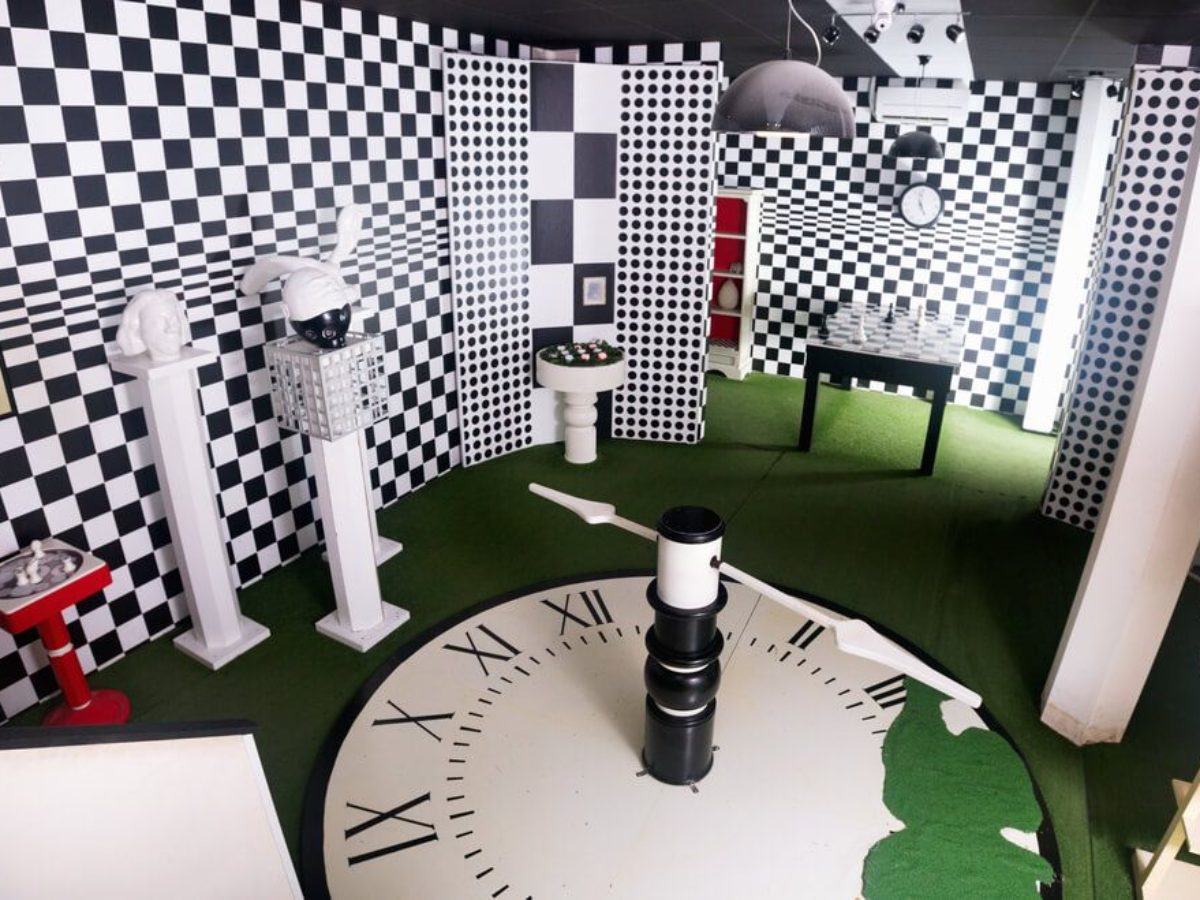Best Escape Room Experience-- Exciting Games and Puzzles for Groups
Wiki Article
Team Strategies: Just How to Team up Efficiently in a Retreat Area
Browsing the intricacies of an escape space necessitates even more than mere enthusiasm; it needs a well-coordinated method grounded in clear interaction, tactical role assignments, and adept time management. Groups have to actively listen per member's insights, assign functions that straighten with private staminas, and preserve normal check-ins to make sure focus and avoid redundancy. By promoting a setting that values cohesion and adaptability, teams can dramatically heighten their efficiency and success prices. The nuances of these strategies can transform the experience, however how specifically can they be executed to maximize the possibility for success?Establish Clear Interaction

To help with clear interaction, it is important to designate a main factor of get in touch with for info dissemination. Brief, focused updates from each team participant can keep the group notified without frustrating them with details.

Appoint Roles Strategically
While clear communication sets the foundation for efficient synergy, appointing roles strategically makes sure that each group member's toughness are used properly. In a getaway space scenario, the time-sensitive and intricate nature of difficulties demands a well-organized strategy to task delegation. By determining and leveraging individual proficiencies, teams can enhance their analytic capacities and improve overall performance.First, examine the special abilities and qualities of each individual. Someone with an eager eye for information may excel in discovering concealed items, while a rational thinker could be better suited to fixing problems. It's similarly crucial to have a leader who can oversee development, take care of the timeline, and make definitive telephone calls when essential. This function commonly requires solid business and interpersonal abilities.
2nd, ensure that functions are flexible and versatile. As new difficulties emerge, the group should have the ability to pivot, reapportioning jobs as needed. This versatility helps maintain momentum and prevents traffic jams that might occur as a result of inflexible function tasks.
Ultimately, a tactical technique to duty assignment not just makes best use of the toughness of each employee but likewise fosters a natural environment, driving the group in the direction of a successful escape.
Utilize Diverse Abilities
Recognizing and harnessing the diverse abilities within your group can considerably raise your efficiency in a retreat room. Each employee why not check here brings one-of-a-kind strengths to the table, and properly leveraging these capabilities can speed up analytical and improve general effectiveness. For instance, an employee with solid analytical skills may stand out at decoding intricate codes or patterns, while one more with keen empirical capacities may rapidly identify hidden hints that others could overlook.
Motivate group members to articulate their insights and ideas promptly, guaranteeing that all prospective options are taken into consideration. Furthermore, appointing jobs that straighten with each participant's strengths can prevent bottlenecks and ensure that progress is continuous.
Additionally, variety in abilities usually translates to diversity in assuming designs, which is vital in an escape area setting. While some obstacles might call for rational reasoning and accuracy, others might gain from creative and side reasoning. By acknowledging and leveraging this diversity, groups can resolve a broader series of challenges better, thus increasing their opportunities of a successful getaway.
Manage Time Effectively

First, assign initial minutes for a quick study of the area. Identify noticeable problems and split tasks based on staff member' staminas, making certain that nobody is idle. Set internal time checkpoints to assess development regularly; as an example, purpose to have half the challenges resolved by the mid-point of the video game. This method can aid keep the learn this here now group focused and stop time from escaping unnoticed.
Additionally, stay clear of one-track mind. If a challenge is taking too long, revolve group members or go on to another challenge, returning later with fresh viewpoints. Communication is extremely important-- keep everybody updated on fixed puzzles and remaining tasks to avoid repetitive initiatives.
Finally, Website use any type of tips or ideas sparingly but tactically - best escape room. Understanding when to ask for help can conserve useful time. By sticking to these time monitoring principles, groups can considerably improve their possibilities of a successful and delightful escape space experience
Debrief and Mirror
Reflection is an essential facet of group development and improvement in the context of retreat rooms. As soon as the challenge is completed, whether successfully or not, it is critical for the team to participate in an organized debriefing session. This procedure permits employee to examine their performance, determine staminas, and identify areas for renovation.Start the debrief by reviewing what went well. Highlight specific circumstances of effective interaction, analytical, and cooperation. Identifying these positive behaviors reinforces them and motivates their repetition in future difficulties.
Go over moments of confusion, miscommunication, or inadequate approaches. Urge an open and positive discussion where group participants can share their viewpoints without worry of criticism.
Verdict
To conclude, successful cooperation in a retreat area is asserted upon clear communication, critical function jobs, the effective utilization of diverse abilities, and skilled time monitoring. Routine check-ins and organized debriefings are essential for keeping emphasis and cultivating continuous improvement. By creating a cohesive and adaptive group environment, the probability of successfully addressing challenges and accomplishing the objective of escaping the room is substantially improved. This strategy not just guarantees success yet likewise promotes collective development and understanding.Report this wiki page